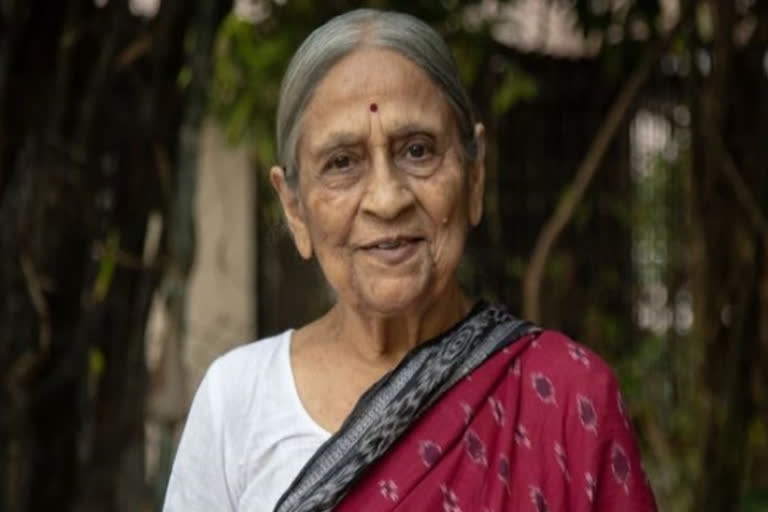Ahmedabad: A lawyer and social worker, Ela Bhatt fought for self-employed women's labour rights for over five decades. A recipient of the Padma Bhushan and Magsaysay awards, Bhatt (89), who died on Wednesday, set up the Self-Employed Women's Association (SEWA) in 1972 after seeing the suffering of poor self-employed women.
Within three years of inception, SEWA had 7,000 members and was registered as a trade union with the government a formidable hurdle to have surmounted. By December 1995, its members numbered almost 220,000, making it the largest single union in India.
Through their organisation and solidarity, SEWA members acquired new negotiating power with their employers and established health, death and maternity benefit schemes to give them security. The SEWA members set up dozens of cooperatives of various trade groups to share skills and expertise, develop new tools, designs and techniques, and engage in bulk buying and joint marketing. These cooperatives have an average of over 1,000 members each.
Bhatt was born in 1933, became a lawyer, then a social worker and in 1968 was the chief of the women's section of the Textile Labour Association in Ahmedabad. In this position, she witnessed first-hand the conditions suffered by poor self-employed women in the city and elsewhere in Asia. These women included weavers, cigarette rollers, vendors of fruit, fish and vegetables, firewood and wastepaper pickers and road construction workers.
Many of them were subject to high rents for stalls or the tools of their trade and also to routine exploitation or harassment by money-lenders, employers and officials. In Ahmedabad, 97 per cent of these women lived in slums, 93 per cent were illiterate, most were in debt and had to take with them to work some or all of their children.
It was to address this situation that in 1972 Bhatt set up SEWA. By December 1995, its members numbered 218,700. The association established its own bank in 1974. This rescued thousands of women from moneylenders and their personal possessions from pawnbrokers, allowing them to accumulate land, small assets and means of production. Its repayment rate on loans is a very impressive 96 per cent.
The organization is affiliated with the International Union of Food and Tobacco Workers and the International Federation of Plantation, Agricultural and Allied Workers. Bhatt was nominated to the Rajya Sabha (1986 to 1989) and was a member of the Planning Commission (1989-1991). She was also a member of "The Elders," a group of global leaders founded by late South African President Nelson Mandela.
In 2010, Bhatt was awarded the Niwano Peace Prize and the first-ever Global Fairness Award. In 2011, Harvard University awarded her the Radcliffe Institute Medal for her life and work. Also in 2011, Bhatt was appointed to the Board of the Reserve Bank of India. The same year, she was selected for the Indira Gandhi Prize. SEWA's decades of relentless advocacy contributed to the passage of the Street Vendors (Protection of Livelihood and Regulation of Street Vending) Bill in Parliament in September 2013.
This law regulates street vending and provides the vendors with licenses to operate. It also prevents vendors' arbitrary eviction and regulates fines, lessening the possibility of them being harassed by corrupt officials. The legislation is considered a landmark step towards securing the livelihoods of the country's urban poor. (PTI)
